Transport
Airports
- 🇬🇧 The UK
- 🇨🇭 Switzerland
- 🇳🇱 The Netherlands
- 🇦🇪 United Arab Emirates
- 🇶🇦 Qatar
- 🇹🇷 Turkey
- 🇳🇦 Namibia
- 🇧🇼 Botswana
- 🇲🇺 Mauritius
- 🇦🇴 Angola
The United Cape States (UCS) expects considerably more international flights to Cape Town International will be instituted as it becomes the main airport for both passengers and freight.
Upington International Airport has one of the longest runways (4,8 km) in the world, historically serving as an emergency landing site for NASA’s space shuttles. The UCS will consider Upington Airport as a potential important air freight node.
There are several short-distance and long-distance airports; George, Ysterplaat, Air Force Base Overberg, Air Force Base Langebaan.
Harbours
The United Cape States (UCS) has three commercial harbours namely Cape Town (Table Bay), Saldanha and Mossel Bay.
The Cape Town harbour has been in use since the arrival of Jan van Riebeeck in 1652, and is a modern large sea freight harbour node, annually serving more than 2500 ships of all types, handling approximately 900,000 Twenty-Foot Equivalent Unit containers (TEU containers). The United Cape States (UCS) will be upgrading this harbour to handle 1,4 – 2 million TEU containers per year.
Saldanha is the largest and deepest natural harbour in the southern hemisphere, mainly used for the export of minerals and is a multipurpose dock which is used for freight and tankers transporting fuel to strategic oil storage facilities. Considering the proximity of the Air Force Base Langeberg and the excellent road and railway connections, the United Cape States (UCS) is going to develop Saldanha harbour into a second import and export node.
The Mossel Bay harbour is mainly used for the fishing industry purposes and serving Mossgas. With its two offshore mooring points large ships can be anchored, one of which features a tanker terminal where petroleum can be shipped or landed.
Railways
Railway transport is to be revisited and converted from mainly freight usage for heavy mass materials such as coal, iron ore and grain, the United Cape States (UCS) views an effectively functioning railway network as an essential component of our national infrastructure. Railway services are a huge resource for the mass transport of goods when managed and maintained efficiently, they remain the cheapest mode of mass products transport especially for exceptionally heavy goods. It is also clear to the UCS that we need an efficiently managed railway network to support long-term development.
Due to the many decades of neglect, the repair and upgrade to our rail network will bear a high cost and take some time. The UCS foresees that during this repair and upgrade period the railway network is extended to as many towns as possible, increasing the use of passenger trains to provide cheaper, safer and fast commuting options.
Roads
As discussed earlier the United Cape States (UCS) will utilise most of the ATT taxation income for infrastructure and the national road network is one priority.
National routes are to be maintained and managed by the UCS central government, with considerable financial benefit from good maintenance policies. Improvement of road surface quality is vital to increasing road safety and improving the resulting overall travel experience for our citizens.
Commodities shipped in freight containers are usually cheaper by road transport since containers are transported from starting point to destination, but heavy load trucking takes its toll on road surface and structure.
